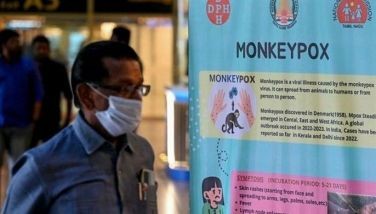Pakistan freeing 7 more Taliban prisoners
ISLAMABAD — Pakistan is releasing seven more Taliban prisoners to facilitate a peace process aimed at reaching a political resolution to the war in neighboring Afghanistan, the Foreign Ministry announced Saturday.
Some 26 other Taliban detainees have been released over the last year in an attempt to revive the troubled peace process, but critics have questioned whether they have enough influence to convince the Taliban to negotiate after their release. Some fear the released militants may simply return to the fight.
The statement did not make clear if the releases had already happened or were in the process of happening. Two Pakistani intelligence officials said the men were no longer in Pakistani custody but refused to share any more details about their whereabouts. They spoke on condition of anonymity because they were not authorized to speak to the media.
The Foreign Ministry identified the seven Taliban detainees as Mansoor Dadullah, Said Wali, Abdul Manan, Karim Agha, Sher Afzal, Gul Muhammad and Muhammad Zai.
It is not clear why Islamabad, which has historical ties with the Afghan Taliban but which is battling its own branch of the militant movement, had arrested the men originally.
The most well-known among them appears to be Dadullah who was captured in Feb. 2008 by Pakistani forces in Baluchistan. He was a commander in southern Afghanistan. According to the Long War Journal, which tracks militant activity in Afghanistan and Pakistan, he took command in 2007 after his brother was killed by British special forces in Helmand province.
But little information is known about the other six detainees, the circumstances of their capture, and how long they've been in Pakistani custody.
Even Dadullah's status within the Afghan Taliban was not immediately clear. The Long War Journal reported in 2008 that Dadullah had been relieved of his command by the Afghan Taliban leadership, although Dadullah denied it.
The release comes less than two weeks after Afghan President Hamid Karzai visited Pakistan to discuss the peace negotiations.
Pakistan is seen as key to the peace process because of its strong historical ties with the Taliban. But Pakistan and Afghanistan have long had troubled relations and view each other with suspicion, especially with Kabul repeatedly accusing Islamabad of providing sanctuary for the insurgents.
It is uncertain whether the prisoner release will actually assist in the peace process.
Previous prisoner releases ended up causing friction with Kabul — and Washington — which were both frustrated that Pakistan was not monitoring the whereabouts and activities of the former inmates. At least some of the released militants are believed to have rejoined the insurgency, underscoring how difficult it will be to reach a political settlement before the end of next year when most U.S. troops are scheduled to leave Afghanistan.
Concerns that these militants would just go back to the fight were apparent Saturday in Afghanistan.
"It is good, the release of these prisoners, but only if they go into normal life. If they are going to take weapons to fight again, they'll never help the peace process in Afghanistan," said Mohammad Mohaqeq, a member of the Afghan High Peace Council which is tasked with representing the government in the peace talks.
Also, Pakistan has not yet agreed to release its most important Taliban prisoner, Mullah Abdul Ghani Baradar, the insurgent group's former deputy commander. The secretary of the peace council, Mohammad Ismail Qasimyar, questioned whether Baradar would be released, saying there were concerns about his health.
Pakistan helped the Taliban seize control of Afghanistan in 1996, and many insurgents fled across the border following the U.S.-led invasion in 2001. Islamabad is widely believed to have maintained its ties to the Taliban, despite official denials.
Pakistan has said it supports a peace agreement with the Taliban as the best way to avoid Afghanistan descending into further chaos after the U.S. drawdown.
There are fears that instability in Afghanistan would provide cover for domestic Taliban militants at war with the Pakistani state. Those militants already have some sanctuaries in Afghanistan and periodically stage cross-border attacks into Pakistan.
But Pakistan and Afghanistan may have trouble agreeing on what role the Taliban should play in the country following a peace deal.
- Latest
- Trending



























